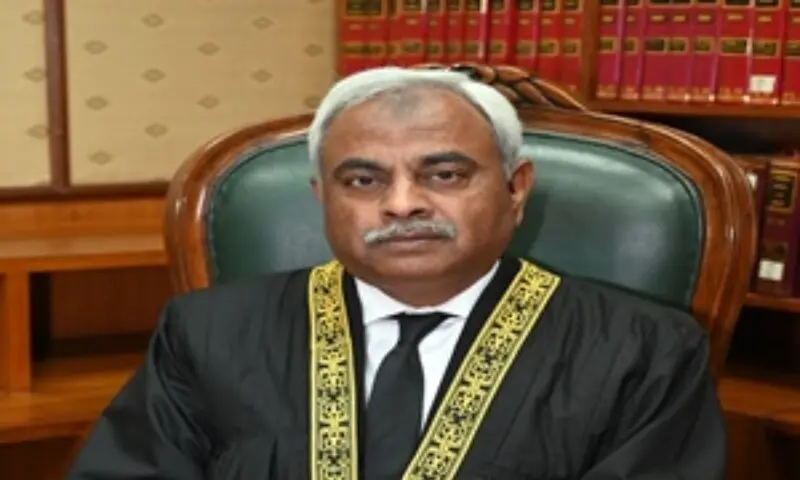ISLAMABAD: Justice Shakeel Ahmad on Monday expressed regret over the transfer of three judges to the Islamabad High Court (IHC) under Article 200(1) of the Constitution, stating that the move appeared to disregard established judicial norms and undermined the legitimate expectations of senior judges, particularly regarding their prospects for appointment as chief justice or elevation to the Supreme Court.
Justice Shakeel Ahmad, a member of the five-judge constitutional bench who dissented from the majority decision on the seniority issue of IHC judges, observed that the transfers not only posed a threat to judicial independence but also revealed procedural irregularities.
By a three-to-two majority, the Justice Muhammad Ali Mazhar-led constitutional bench upheld on June 19 the transfer of three judges to the IHC from three different high courts, ruling that the move fell within the framework of the Constitution. However, the matter was remanded back to the President to promptly determine inter-se seniority among the judges based on their service records.
Justice Naeem Akhtar Afghan and Justice Shakeel Ahmad dissented, describing the permanent transfers from the Lahore, Sindh, and Balochistan High Courts as a development that caused ripples within the judiciary, carried out through a flawed exercise of discretion under Article 200(1) and effectively rendering Article 175A redundant.
What is done once, if it is allowed, may be done again, judge observes
In his 23-page additional dissenting note, Justice Ahmad cited Lord Justice Pearce in the 1966 Liyanage case to stress the gravity of the precedent: “What is done once, if it be allowed, may be done again and in a lesser crisis and less serious circumstances.”
Justice Ahmad asserted that while constitutional provisions must prevail if clearly permitted, any such course must still be restrained through established principles of constitutional interpretation, warning that failure to do so would be a dereliction of duty. “In the larger interest of our country, in fidelity to the rule of law, and in unwavering defence of constitutionalism, it is our bounden obligation to ensure that transient convenience does not become a precedent for permanent erosion,” he stated.
Justice Ahsan’s visit
Meanwhile, Justice Muhammad Ahsan from Supreme Court of Denmark visited the apex court, as part of his official tour on an invitation of Pakistan’s apex court.
An eminent jurist with a distinguished career in constitutional and administrative law, Justice Ahsan has served in various judicial and academic roles in Denmark and is recognised for his contributions to judicial reform.
He was warmly received by Chief Justice of Pakistan Yahya Afridi.
Published in Dawn, October 7th, 2025





